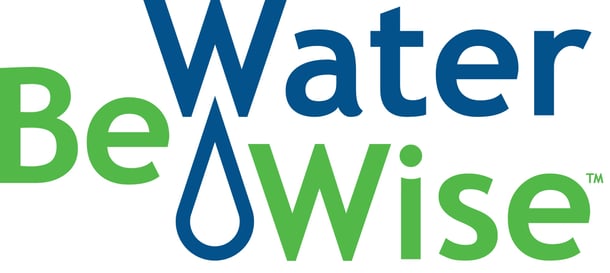Be WaterWise
Water conservation is very important. Not only is it an environmentally responsible thing to do, but it also helps to lower your monthly water bills.
Below are some simple ways you can conserve water and protect water quality:
- Limit lawn watering to 1-2 times per week for 30 minutes. During hot, dry weather events, approximately 50-70% of all drinking water produced in Central Indiana is used for watering lawns, with automated irrigation systems using the largest volume. Most Central Indiana lawns only need watering one to two times per week for no more than 30 minutes at a time. Watering lawns and other plants too often results in shallow roots, weed growth, fungus, and stormwater runoff that can impact local streams.
- Stagger lawn watering. Properties with street addresses ending in an odd number (1, 3, 5, 7, or 9) should water on Monday and/or Thursday. Properties with street addresses ending in an even number (0, 2, 4, 6, or 8) should water on Tuesday and/or Friday.
- Be aware of the weather. Rain serves as a natural irrigation so adjust accordingly. A smart irrigation controller can help you save money. Don’t water during windy days as the water droplets will be blown away from the intended area.
- Be drought aware. During extended hot and dry periods, lawns only need to be irrigated once every 2-3 weeks to stay alive. Don’t throw away money or waste water by trying to keep your lawn green during a drought. Grass naturally goes dormant during these periods and will return when rain returns.
- Everyone can protect water quality. Use phosphorus-free fertilizer on your lawn. Phosphorus fertilizer runoff causes algae growth in area reservoirs and streams which in turn can cause taste and odor problems in our drinking water. This runoff also increases the possibility of skin irritation for swimmers.
- Optimize sprinkler systems, and use the garden hose properly. Make sure sprinkler heads are set in the correct direction as to not water your driveway or sidewalks. Sweep driveways, sidewalks, and steps rather than hosing them off. Use drip irrigation to target plants rather than watering an entire mulch bed. Check your garden hose connections for leaks. If your hose connection leaks at the spigot or at a connection with another hose, replace the nylon or rubber hose washer and tighten the connection.
- Check for leaks in your plumbing to save water and money. Regularly check your toilet, faucets, and pipes for leaks. Check your water meter before and after a two-hour period when no water is being used. If the meter changes at all, you probably have a leak somewhere.
- Ensure appliances are full. Only run the dishwasher and washing machine when they are full, and use a water-saver cycle if you have one.
- Consider buying water-saving appliances and devices. Look for the U.S. EPA's Water Sense and Energy Star labels when buying dishwashers and clothes washers. Use water-saving showerheads, toilets, and faucet aerators. These labels indicate appliances and plumbing fixtures that save water or energy.
- Reduce water use in the bathroom and kitchen. Don't leave the water running as you brush your teeth, shave, or wash dishes. Take shorter showers.
- Make WaterWise choices in your selection of landscaping plant species. Native Indiana plants are naturally drought resistant.


